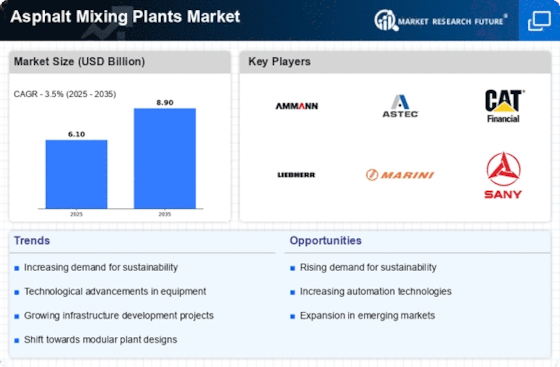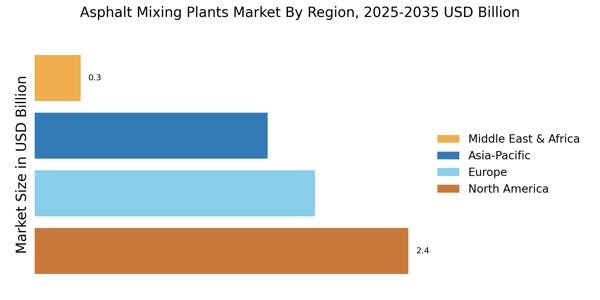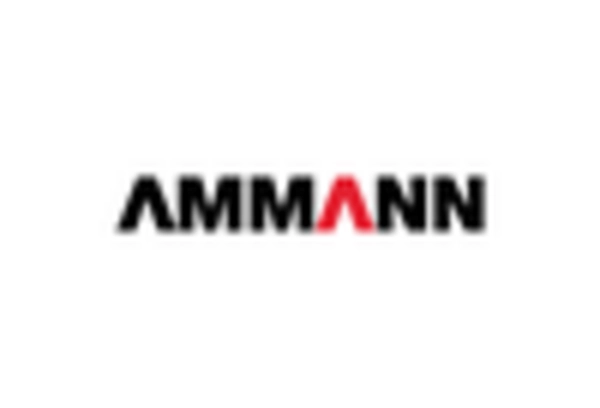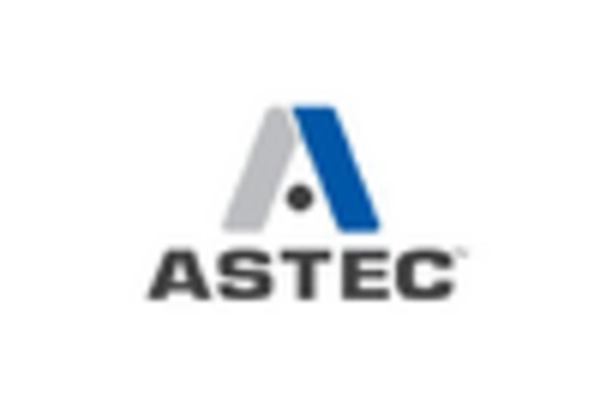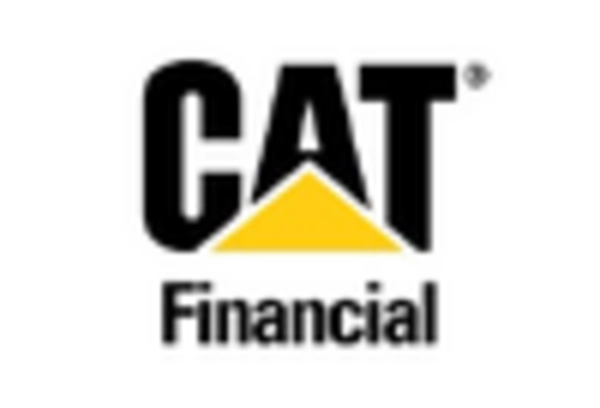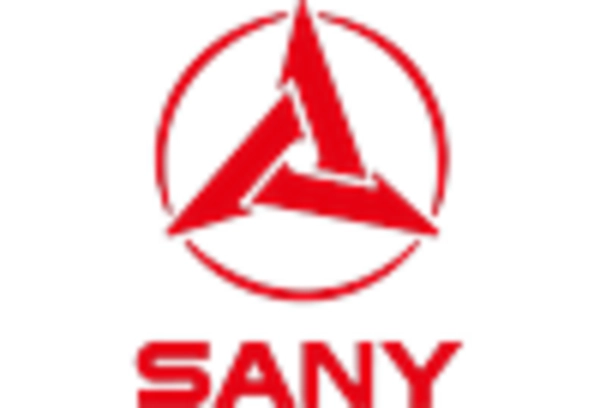Government Regulations and Standards
The Asphalt Mixing Plants Market is significantly influenced by government regulations and standards aimed at ensuring quality and environmental compliance. Stricter regulations regarding emissions and material quality are prompting manufacturers to adopt more advanced technologies in their asphalt mixing processes. Compliance with these regulations not only enhances product quality but also opens up new market opportunities. For instance, the introduction of low-emission asphalt mixing plants is likely to gain traction, as they align with global sustainability goals. This regulatory landscape is expected to drive innovation and investment in the Asphalt Mixing Plants Market, as companies strive to meet evolving standards.
Infrastructure Development Initiatives
The Asphalt Mixing Plants Market is experiencing a surge in demand due to increased infrastructure development initiatives. Governments and private sectors are investing heavily in road construction and maintenance projects, which require efficient asphalt mixing solutions. For instance, the global demand for asphalt is projected to reach approximately 1.5 billion tons by 2026, driven by urbanization and the need for improved transportation networks. This trend indicates a robust growth trajectory for the Asphalt Mixing Plants Market, as these plants are essential for producing high-quality asphalt that meets stringent regulatory standards. Furthermore, the emphasis on durable and sustainable road surfaces is likely to propel the adoption of advanced asphalt mixing technologies, thereby enhancing the overall market landscape.
Growing Urbanization and Population Growth
Urbanization and population growth are key drivers of the Asphalt Mixing Plants Market. As more people migrate to urban areas, the demand for infrastructure development, including roads and highways, is escalating. This trend is particularly evident in emerging economies, where rapid urbanization is leading to increased construction activities. The asphalt consumption in these regions is projected to rise significantly, potentially exceeding 1 billion tons by 2025. Consequently, the Asphalt Mixing Plants Market is likely to benefit from this surge in demand, as efficient asphalt production becomes crucial for meeting the needs of expanding urban populations.
Rising Demand for Sustainable Construction
Sustainability is becoming a pivotal focus within the Asphalt Mixing Plants Market. The increasing awareness of environmental issues has led to a demand for eco-friendly asphalt solutions. Many construction companies are now seeking to utilize recycled materials in asphalt production, which not only reduces waste management but also lowers costs. The market for warm mix asphalt, which requires lower temperatures during production, is expected to grow significantly, potentially reaching a market size of over 300 million USD by 2027. This shift towards sustainable practices is likely to drive innovation in asphalt mixing technologies, thereby enhancing the efficiency and environmental performance of asphalt mixing plants.
Technological Innovations in Asphalt Production
Technological advancements are reshaping the Asphalt Mixing Plants Market, with innovations aimed at improving efficiency and product quality. The integration of automation and digital technologies in asphalt mixing plants is becoming increasingly prevalent. For example, the use of advanced control systems allows for precise monitoring and adjustment of the mixing process, leading to better consistency in asphalt quality. Additionally, the adoption of artificial intelligence and machine learning in predictive maintenance is expected to reduce downtime and operational costs. As these technologies continue to evolve, they are likely to attract investments, further stimulating growth in the Asphalt Mixing Plants Market.


